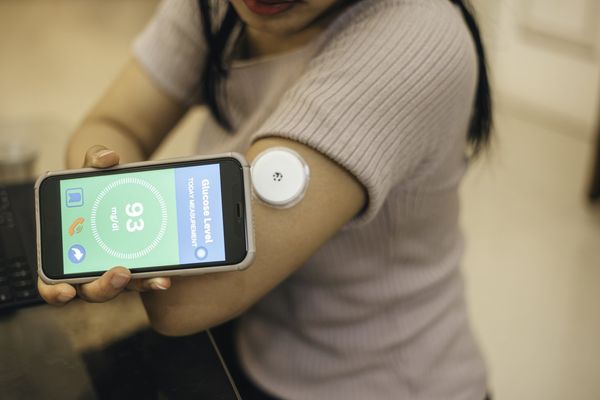Diabetes is where blood glucose (sugar) levels rise higher than normal. The most common form of diabetes is type 2 diabetes, says the American Diabetes Association. Here, your body doesn't use insulin correctly. Your pancreas makes extra insulin to compensate for it. Over time, though, it can't keep up and can't make enough insulin to maintain normal blood glucose levels.
Read more about diabetes.
Some people with type 2 diabetes can control their blood glucose with exercise and healthy eating. But, your doctor may need to also prescribe oral medications or insulin to help you meet your target blood glucose levels. Type 2 usually worsens over time. So, even if you don't need medications at first, you may need them later.
We're here to debunk some common myths about this condition.
Myth: Diabetes is caused by eating sugar.
Fact: Any diet high in calories—from sugar or another source—contributes to weight gain. And weight gain increases your type 2 diabetes risk.
Myth: If you're overweight, you'll develop type 2 diabetes.
Fact: Yes, being overweight is a risk factor for developing diabetes. However, other risks factor into getting it, like family history, ethnicity, age and level of physical activity. Many people with type 2 diabetes are a normal weight or moderately overweight.
Myth: People with diabetes can't eat chocolate or sweets.
Fact: No foods are off limits to people with diabetes. The key is eating them in small portions and saving them for special occasions. That way you can maintain a healthy meal plan.
Myth: People with diabetes aren't producing enough insulin.
Fact: People with type 2 diabetes typically have enough insulin when they're first diagnosed. But this insulin isn't working properly. The insulin doesn't help cells absorb glucose from food. Their pancreas may eventually stop making enough insulin. Then, they'll need injections.
Myth: You're more likely to catch a cold if you have diabetes.
Fact: You're no more likely than anyone else to get a cold, the flu or other illness. However, illnesses can make diabetes harder to manage.
Myth: You'll have to give yourself shots.
Fact: Yes, injectable medications do require shots. Other treatments may not require shots. You may use insulin pens, oral medications or blood sugar meters, which don't require injections.
Myth: You can't live an active life if you have diabetes.
Fact: Exercise is crucial to controlling diabetes. It can help your muscles use glucose without relying on insulin. It also helps your cells use insulin better. Your health care professional can help you devise an exercise program that's right for you.
Myth: You don't need to test your blood sugar because you'll know when it's low or high.
Fact: You can't rely on how you're feeling to determine your blood-sugar level. You may be urinating a lot because you have a bladder infection, not because your glucose is high. You may not be feeling well because you're getting a cold, not because you have low blood sugar. The only way to accurately know your blood-sugar level is to test it.
Myth: Diabetes has no symptoms.
Fact: Some people with type 2 diabetes have symptoms so mild that they go unnoticed, but others may have symptoms. Common symptoms include feeling very thirsty, urinating often, feeling very hungry even though you're eating, experiencing blurry vision and or having cuts or bruises that heal slowly.
Myth: People with diabetes lose a limb or go blind.
Fact: Diabetes can cause serious damage like blindness, kidney disease, limb loss, heart disease and stroke when left uncontrolled. That risk can be reduced by controlling blood sugar. Early detection, urine tests, eye exams and foot exams can also lower the risk of complications.
- What You Need to Know About Diabetes - HealthyWomen ›
- Facts About Diabetes Quiz - HealthyWomen ›
- What You Need To Know About Diabetes - HealthyWomen ›
- Facts About Diabetes Quiz - HealthyWomen ›







